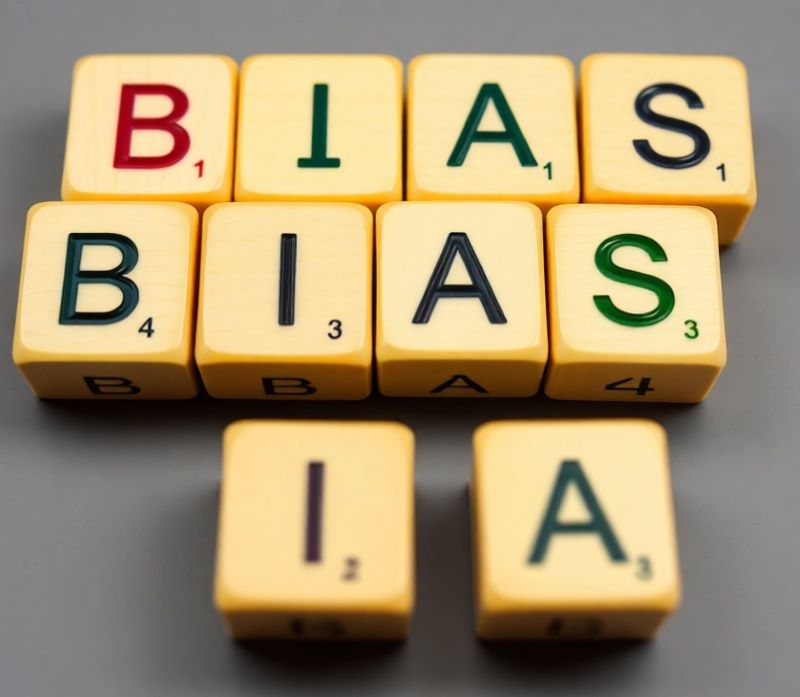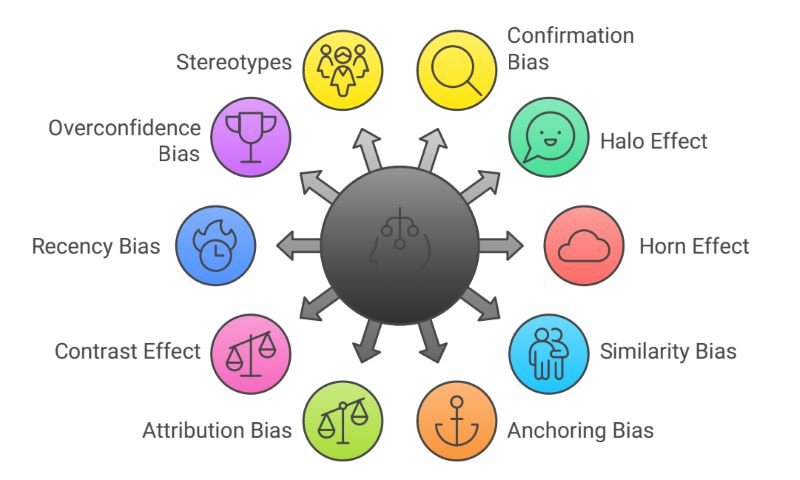The importance of knowing biases for a recruitment agency

Cognitive biases play a significant role in the recruitment processes, often distorting decisions and affecting the quality of hires. Recruitment agencies and Hr consulting firms must understand these biases to offer smart solutions to companies looking for the best candidates.
What are cognitive biases and why they are important for the recruitment process

Imagine this scenario: John and Maria are looking on job portals and social media for some job offers in the marketing field in eastern europe. Sarah, a recruitment consultant at a recruitment agency in Hungary, is conducting a search for a marketing position. There are two candidates for this job opportunity. They go through the application process and schedule a meeting. One candidate, John, catches her attention because he attended the same university as Sarah. She immediately feels a positive connection and assumes that John is highly skilled and qualified for the company. During the interview, Sarah unconsciously focuses on questions that highlight John’s strengths, reinforcing her initial impression. Meanwhile, another candidate, Maria, who attended a different university and has a slightly different professional background, is interviewed more critically. Sarah is unaware that her unconscious preference for John is driven by similarity bias, the tendency to favor those who resemble us. Despite Maria having more relevant and extensive experience and stronger qualifications, Sarah hires John, convinced he is the ideal candidate.
A few months later, John struggles to meet the demands of the role due to his lack of in-depth knowledge, and Sarah is forced to recognize that her decision in the process was influenced by biases. This not only results in wasted resources but also highlights how cognitive biases can distort the recruitment process, even to the detriment of more qualified candidates.
In her search for marketing profiles, Sarah fell into what is commonly known as cognitive bias. According to Nobel Prize-winning psychologist Daniel Kahneman, who received the award in Economics in 2002, cognitive biases are systematic errors in thinking that influence people's decisions and judgments. These biases stem from the brain’s use of mental shortcuts, or heuristics, to process information more efficiently. While heuristics are often helpful, they can lead to predictable and repeated errors if applied inappropriately to complex situations.
In his book "Thinking, Fast and Slow," Kahneman explains that cognitive biases arise from the brain’s reliance on two systems of thinking:
- System 1: fast, automatic and intuitive thinking based on heuristics.
- System 2: slow, deliberate and analytical thinking that requires conscious effort and reasoning
Cognitive biases generally occur when System 1 dominates decision-making, leading us to overlook relevant information or misinterpret situations, especially in conditions of uncertainty. This stems from the fact that for centuries, maximizing survival chances was the most important thing for our ancestors. It didn’t matter if a stick was mistaken for a snake. In certain situations, decisions had to be made quickly. The key was avoiding the error of mistaking a snake for a stick. This is why, even today, System 1 prevails in a wide range of situations, many of which are influenced by factors we’re not even aware of. This makes it easy to be misled, not only in daily activities but also in more complex tasks like the recruitment process.
This makes really important for staffing and recruiting agencies to provide recruitment solutions to mitigate the impact of these biases.
Reducing the influence of bias in staffing and recruiting companies

Minimizing cognitive biases is essential to ensuring fairness in the hiring procedure, where candidates are assessed based on their qualifications rather than preconceived notions. By reducing biases during the screening process, organizations can foster a more diverse and inclusive workforce, leading to greater innovation and problem-solving abilities. Objective evaluations help businesses hire the best talent, improve employee retention, boost job satisfaction, and meet corporate needs. Moreover, companies that prioritize impartial recruitment services enhance their reputation and compliance with anti-discrimination laws, creating a more equitable and effective process overall.
From a business perspective, reducing biases is crucial to achieving long-term goals. Ensuring fair and objective assessments allows companies to attract and retain global talent, which directly impacts productivity and innovation. A diverse workforce brings a wider range of ideas and perspectives, unlocking new opportunities and improving creativity and problem-solving skills.
Additionally, it is not only crucial to help you find the best employees and fulfill the demand for skilled professionals. Fair hiring practices increase employee satisfaction and retention, reducing turnover costs and the disruption of team dynamics. A company culture that values unbiased recruitment strengthens brand reputation, making the organization more appealing to potential employees and clients, ultimately supporting talent acquisition. Finally, minimizing bias helps organizations adhere to legal standards, reducing the risk of costly discrimination lawsuits. Addressing cognitive biases in recruitment is not only ethical but also aligns with long-term business objectives.
What types of biases staffing agencies should be aware of?

Confirmation bias
Confirmation bias refers to the tendency to seek, interpret, and remember information in a way that confirms one’s pre-existing beliefs or hypotheses. Individuals often prioritize evidence that supports their opinions while ignoring or dismissing conflicting information. This cognitive bias can lead to poor decision-making and reinforce misconceptions, making it crucial to be aware of it when evaluating information or forming judgments.
Let's go back to Sarah, the HR consultant at a recruitment agency in Hungary. Her inclination to pay more attention to John, a candidate that studied in her same university, may lead her to interpret his responses as insightful or aligned with her values, finding confirmation of the required soft skills for the role, while being more critical of Maria, who attended a different university.
Halo effect
The halo effect is a cognitive bias where our overall impression of a person influences how we feel and think about their character and abilities. If we perceive someone positively in one area, we are likely to view them positively in others, even without supporting evidence.
For example, imagine a candidate that makes a great first impression during the initial stages of the interview, such as being exceptionally well-spoken or confident. This strong initial impression might cause the recruiter to rate the candidate more favorably in unrelated areas, like technical skills or teamwork, even if those skills were not demonstrated as strongly later in the interview. The recruiter, influenced by the candidate's early confidence, may overlook gaps in qualifications or experience because the positive trait has created a "halo" around the candidate's overall profile.
Horn effect
The horn effect is the opposite of the halo effect; it refers to a cognitive bias where a negative impression of a person in one area leads to unfavorable judgments about other characteristics or skills. Essentially, if we perceive someone negatively, we are more inclined to assume they possess other undesirable traits, even in the absence of evidence.
For example, when a candidate makes a minor mistake during the interview, such as fumbling a response to a question, the recruiter might perceive him as lacking confidence or communication skills and allow that single moment to cloud their judgment of the candidate's overall abilities. Even if the candidate has a strong resume and performs well in other parts of the interview, the recruiter’s focus on that one mistake may lead to an unfairly negative evaluation of the candidate’s qualifications.
Staffing solutions that focus on holistic assesments can hel mitigate the horn effect.
Similarity Bias
Similarity bias, also known as affinity bias, is the tendency to favor candidates who are similar to oneself in terms of background, interests, values, or experiences. This bias can lead to preferential treatment for candidates who share common traits with the interviewer or decision-makers, potentially influencing hiring decisions.
For example, going back to Sarah, if a hiring manager graduated from a particular university, they might unconsciously favor candidates from that same institution, deeming them more suitable. Similarly, if a candidate shares the same hobbies or interests, the interviewer might view them as more relatable or likable, positively influencing their overall assessment.
This bias can hinder diversity and limit the range of perspectives within a team, as it may cause hiring managers to overlook qualified candidates who differ from them in various ways.
Anchoring Bias
Anchoring bias occurs when individuals rely too heavily on the first piece of information they encounter (the “anchor”) when making decisions. This initial information can disproportionately influence subsequent judgments and evaluations, even if it is irrelevant or misleading.
For example, a recruiter might review a candidate's resume and notice that they have held several positions at high-profile companies. This initial information can anchor the recruiter’s perception of the candidate’s capabilities. If the recruiter subsequently learns that the candidate has relatively short tenures in those roles, they might still focus on the prestige of the companies rather than critically assessing the candidate's actual contributions and fit for the position. As a result, the recruiter could overlook important details regarding the candidate's performance, leading to an inflated perception of their qualifications based solely on the initial anchor of their past employers.
Anchoring bias can lead to distorted evaluations and decisions, as the first impression or piece of information can overshadow a more thorough assessment of the candidate’s qualifications and suitability for the role.
Attribution Bias
Attribution bias refers to the tendency to attribute a person's behavior to their character or personality rather than to external factors or situational influences. This bias can significantly affect how we perceive and evaluate candidates during hiring.
Attribution bias in recruitment could arise during a discussion about a candidate's job performance in a previous role. If a candidate mentions they had to leave a job due to a company-wide downsizing, the recruiter might attribute this to the candidate’s inability to adapt or fit into the company culture, assuming that the candidate was somehow at fault. On the other hand, if another candidate, who was let go under similar circumstances but comes from a well-known organization, is evaluated, the recruiter might attribute their departure to external factors, such as the economy or the company’s poor management.
Attribution biases can lead to misinterpretations of a candidate's qualifications and abilities, as they fail to account for the complexity of individual circumstances and can result in unfair judgments during the hiring process.
Contrast Effect
The contrast effect is a cognitive bias that occurs when a candidate's evaluation is influenced by the performance or characteristics of candidates interviewed previously. Essentially, if a candidate is assessed immediately after another candidate who performed poorly, the first candidate may be viewed more favorably, and vice versa.
For example, if a hiring manager interviews a strong candidate right after a weaker one, they may perceive the strong candidate as even more impressive than they would have independently. Conversely, if an impactful candidate is interviewed immediately after a mediocre one, the latter may appear less competent by comparison, regardless of their actual qualifications.
This bias can distort candidate evaluations and lead to inconsistent assessments, as the relative performance of candidates may overshadow their individual merits. It is essential to approach each interview with a fresh perspective to minimize the impact of the contrast effect.
Recency Effect
Recency bias is a cognitive bias that occurs when individuals place greater importance on the most recent information or experiences when making evaluations or decisions. This bias can lead to an undue emphasis on recent performances, overshadowing earlier evidence or behaviors.
In the context of recruitment, for example, if a hiring manager interviews several candidates over a few days, they might disproportionately weigh the performance of the last candidate in their final decision. If the last candidate performed exceptionally well or poorly, this could unduly influence the manager's overall evaluation of all candidates interviewed, even if earlier candidates were equally or more qualified.
This bias can result in unfair assessments, as it can distort the hiring procedure by not considering the full range of a candidate's qualifications and performances throughout the interview process. To mitigate recency bias, it can be helpful to take detailed notes during each interview and review them collectively before making a final decision.
Overconfidence Bias
Overconfidence bias is the tendency to overestimate one’s abilities or knowledge, leading to inflated certainty in judgments and decisions.
For example, a recruiter might feel overly confident in their judgment after a few successful hires, leading them to disregard objective data or assessments during the current hiring process. They may rely heavily on their gut feelings about a candidate, believing they can accurately predict the candidate's future performance based solely on their initial impressions.
This bias can result in the recruiter dismissing red flags in a candidate's background or qualifications because they are convinced that their intuition is infallible. For example, if a recruiter interviews a charismatic candidate and feels confident about their potential, they might overlook inconsistencies in the candidate’s resume or a lack of relevant experience. This overconfidence can lead to poor hiring decisions, as the recruiter fails to conduct a thorough and objective evaluation.
This bias can harm the quality and diversity of hiring. Utilizing structured evaluation criteria and encouraging a collaborative decision-making process can help mitigate its effects.
Stereotypes
Stereotypes are cognitive biases wherein generalized beliefs about a group lead to overly simplistic judgments about individuals.
For example, if a recruiter assumes that younger candidates are less experienced or less capable of handling responsibility, they might overlook a highly qualified young applicant simply because they fit a stereotype.
Conversely, if a recruiter believes that candidates from a certain university are inherently superior due to its prestigious reputation, they may unfairly favor those candidates over equally qualified individuals from lesser-known institutions. This reliance on stereotypes can lead to biased evaluations and hinder diversity in the workplace, as decisions are made based on preconceived notions rather than the individual qualifications and abilities of each candidate. Stereotyping can ultimately undermine the effectiveness and fairness of the recruitment process, giving more job opportinities to just to certain categories.
To combat these biases, use structured interviews and evaluation criteria that emphasize individual qualifications over group-based assumptions.
Primacy Effect
The primacy effect, or first impression bias, refers to the tendency for initial information to heavily influence subsequent judgments.
For instance, if a recruiter starts the interview process with a candidate who has an impressive resume and a strong first impression, they may anchor their perception of that candidate’s abilities on that initial experience.
As a result, even if later candidates demonstrate equal or superior qualifications, the recruiter may still favor the first candidate, believing them to be the best fit for the role based solely on that initial impression. This bias can lead to a lack of objectivity, as the recruiter's judgment is disproportionately influenced by the first candidate they encountered, potentially causing them to overlook the strengths of other candidates. The primacy effect can thus skew hiring decisions, making them less reflective of the candidates' actual qualifications.
Similarly to the recency bias, taking detailed notes during interviews and reviewing all aspects of a candidate's performance can help ensure a balanced evaluation.
Additional Biases
The most significant and well-known biases have been outlined above, along with applied examples in the field of personnel selection and recruitment. Obviously, many other biases can be identified, as numerous distortions can occur in our thinking.
Other biases worth mentioning include status quo bias, illusory correlation, groupthink, the Bangdown effect, and ingroup bias.
Can AI help agencies to reduce mistakes?

One of the frequent questions in recent years is whether artificial intelligence can help reduce the impact of biases and improve human resources practices.
Let'a analyse this example from the United States. In 2015, one of the biggest multinational companies, Amazon, had to abandon its AI-based recruitment tool after discovering that it was biased against women. The development team was looking for some smart solutions to automate the hiring procedures. They decided to developed a machine learning system able to screen resumes and select top talent. However, the AI system was trained on resumes submitted to Amazon over the last ten years, a period when most qualified personnel in the job market for technical roles were men. Consequently, it was giving men more job opportunities. It wasn't a system based solely on assessing skills: in selecting tech people, the AI learned to favor a men job seeker, penalizing resumes that included the word “woman” (for example, “captain of a women’s chess club”) and downgrading candidates from women’s colleges, despite some of the best talent in the tech sector potentially coming from these schools. For these job openings, female candidates, even those with high-level qualifications and years of experience, were significantly disadvantaged in applying for these employment opportunities.
Amazon's AI reflected gender biases, making it harder to select qualified female personnel and hindering female candidates from advancing in the process Despite efforts to correct the system, Amazon ultimately abandoned the tool in 2017, recognizing that biases were deeply entrenched. This example shows how cognitive biases, in this case stemming from historical data, can inadvertently reinforce discrimination in hiring employees, even when using automated systems.
Despite some issues, AI allows for greater data collection and offers solutions to reduce biases and make better decisions.
AI plays a crucial role in transforming recruitment by creating a more objective and fair process. Through standardized assessments, it ensures that all candidates are evaluated based on the same criteria, significantly reducing subjective biases.
Blind hiring is another method AI supports by anonymizing resumes, removing identifying information, and allowing employers to assess candidates solely on their qualifications.
Furthermore, AI enables data-driven decision-making by analyzing vast amounts of hiring data to uncover patterns and provide objective insights. This helps to minimize human biases in the selection process.
With predictive analytics, AI can also assess candidate suitability based on historical data, reducing reliance on gut feelings and improving the accuracy of hiring decisions.
Natural Language Processing (NLP) adds another layer of fairness by analyzing the language used in resumes and interviews, helping to identify biases and ensuring a more objective evaluation. AI continuously learns from past hiring decisions, becoming more adept at recognizing and addressing biases, which contributes to improving fairness in recruitment.
Moreover, AI is instrumental in sourcing diverse candidates by identifying talent from a wide range of platforms, encouraging a broader pool of applicants.
Finally, AI fosters accountability by tracking the recruitment procedure, highlighting potential biases, and prompting reflection among recruiters to promote a more equitable hiring practice.
While AI has the potential to reduce cognitive biases, it’s crucial to recognize that AI systems can also perpetuate biases if trained on skewed data, as Amazon’s example illustrates. It is essential to ensure that AI tools are designed with the specific needs of staffing agencies and HR consultancy in mind, while also considering fairness and regularly checking for biases. Moreover, human oversight remains vital to effectively interpret and contextualize the insights generated by AI through a personalized approach. To provide more professional services they must ensure that these insights are adapted to the corporate culture and serve the interests of job seekers and clients.
Conclusion
Cognitive biases are a natural part of human decision-making, but they can be detrimental when it comes to hiring. By addressing these biases, staffing and recruiting companies can improve the quality of their hires and offer better solutions to their clients. A focus on fairness and objectivity in the recruitment process is not only ethical but also essential for business success. This comprehensive approach to reducing biases will ultimately help organizations and employment agencies navigate the complex job market, ensuring they attract top talent and remain competitive in an ever-evolving landscape.
Contacts
If you want to know more about our international recruitment solutions and on how we take care of the hiring procedure visit our page on recruitment services.


